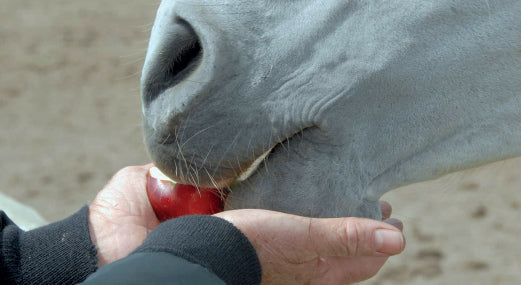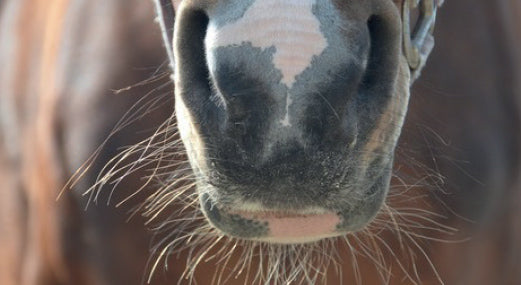Digestive Health
Can a calcium supplement derived from seaweed, affect the pH of gastric juice in horses?
The horse’s stomach consists of an upper non-glandular (squamous) area and a lower glandular area. The glandular area secretes acidic gastric juices, essential to support digestion. The non-glandular area lacks suitab...
Read More
How do horses and humans differ in their preference for treats?
The use of treats for companion animals is common. The use of treats by equine caregivers is increasing, although has been little studied to date, especially in comparison to treat use and choice for other companion s...
Read More
How does the packaging of horse treats affect their palatability and shelf-life?
The use of treats in animal training and management is becoming commonplace. The packaging that treats are stored and sold in varies but should protect the contents from environmental challenges and maintain the integ...
Read More
Is obesity linked to low grade systemic inflammation in horses?
It is well recognised that human obesity is linked with systemic inflammation and predisposes the individual to multiple diseases. However, it is unproven if obese equines also produce more inflammatory mediators and ...
Read More
Do supplements containing turmeric and devil’s claw irritate the equine stomach?
Supplements containing turmeric and devil’s claw are frequently recommended and fed to horses with inflammatory conditions such as arthritis due to the inhibitory effect these compounds have on the production of the i...
Read More
Are alterations in the gut microbiota responsible for equine Faecal Water Syndrome?
Faecal Water Syndrome (FWS) is a condition where affected equids pass droppings of normal consistency but they are accompanied by watery faecal content either before, during or afterwards1. The cause of FWS remains un...
Read More
Does concurrent omeprazole prevent gastric ulceration with phenylbutazone (bute) therapy?
Non‐steroidal anti‐inflammatory drugs (NSAID e.g. phenylbutazone, “bute”) are commonly used for treatment of inflammation, fever and pain in horses. Adverse effects of these drugs include kidney damage and ulceration ...
Read More
Is sprouted barley beneficial to gut health?
Sprouted cereals have a better digestibility and contain oligosaccharides that act as prebiotics improving and stabilising the intestinal flora. Researchers in Spain have recently studied if supplementation with germi...
Read More
Accuracy of diagnostic tests for detection of strangles carriers
Strangles, infection of the upper respiratory tract with Strep equi var. equi, is common in the equine population. A subclinical ‘carrier’ status exists in which residual bacteria persist, usually in the guttural pouc...
Read More
Novel camera pill to visualise the gastrointestinal tract
It is difficult to perform a thorough internal examination of the horse’s intestinal tract which often limits the ability to diagnose intestinal disease. Imaging techniques are mainly limited to examination of the sto...
Read More
Is Acute Colic Associated with Changes in the Equine Colonic Microbiome?
The horse’s hindgut (large colon) is populated with billions of micro-organisms that help digest the large quantities of cellulose (a type of complex carbohydrate) consumed in a forage-based diet. Horses cannot digest...
Read More
Oxidative stress is evident in horses with equine gastric ulcer syndrome
Equine gastric ulcer syndrome (EGUS) is common in horses. Studies show that over 90% of horses in strenuous athletic work, such as racing Thoroughbreds and endurance horses have ulcers on gastroscopy (scoping the stom...
Read More













